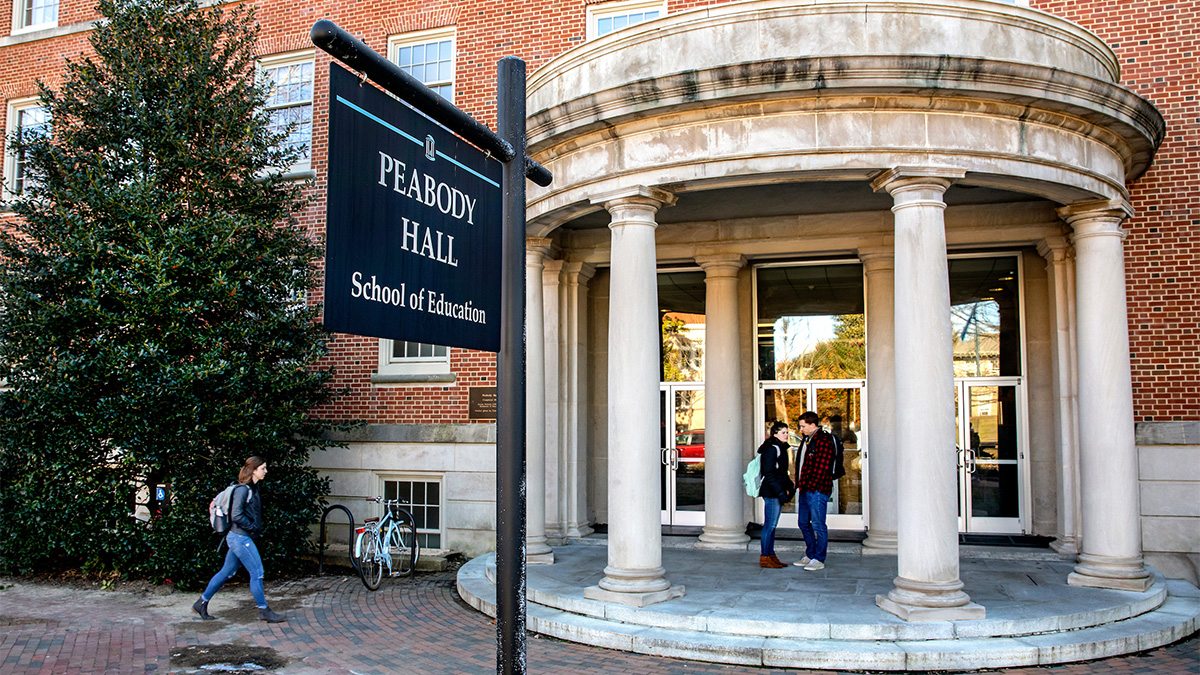Education partnership guides post-pandemic learning recovery
The School of Education’s North Carolina Practitioner Network connects K-12 educators, university researchers and state policymakers.

Public schools continue to face challenges stemming from the pandemic. Many schools opened in fall with teacher vacancies and students performing below grade level. To support school districts’ efforts in learning recovery, faculty members in the UNC School of Education are leading an effort to connect K-12 and higher education leaders and educators, university-based faculty and researchers, and state policymakers.
The North Carolina Practitioner Network is a new partnership between the UNC School of Education and the North Carolina Department of Public Instruction with funding from NCDPI and the North Carolina Collaboratory. The network will bring together up to 16 of North Carolina’s public school districts and charter organizations with university faculty members from across the state to work together on evidence-based solutions to the most pressing problems districts and schools face right now.
Lauren Sartain, an assistant professor who co-leads the network’s efforts, previously worked at the University of Chicago Consortium on School Research, a 30-year research-practice partnership with Chicago Public Schools that has been replicated across the country.
“Academic research traditionally relies on university faculty as the experts who decide what problems are important to investigate,” Sartain said. “This network is different because it will connect district and school folks with researchers in a way that makes them equal and committed partners with the same goal of improving education across North Carolina.”
The network will feature interactive workshops, both online and in-person, in which school leaders will delve into various research methodologies, tools and techniques and how to apply them in K-12 settings.
“By training district leaders in research methodology and connecting them with university partners, we want to foster data-driven solutions that positively impact policy and classroom practice,” said Jeni Corn, NCDPI director of research and evaluation.
Each participating district will be matched with faculty fellows from different universities across North Carolina who can be thought partners and provide technical support.
“We envision this developing into a statewide community where researchers and education leaders work hand-in-hand to generate learning outcomes that will benefit students and educators,” Sartain said.
Matthew Springer, Robena and Walter E. Hussman Jr. Distinguished Professor of Education Reform, will co-lead the network. Its first year will focus on designing and learning — with support from UNC Digital and Lifelong Learning to develop content for online workshop modules. In its second and third years, a subset of the district and charter teams will receive support to implement their solution to a problem identified in year one.
The network will engage leaders at the state, local and institutional levels to address issues through an evidence-based lens.
“The more we can focus on evidence-based solutions to pressing practice and policy concerns, the more likely we are to improve educational opportunities for students,” Springer said. The network will also look at “persistent problems like teacher recruitment and retention or post-secondary pathways.”
The Collaboratory is a key partner supporting the Practitioner Network. Established by the North Carolina General Assembly in 2016, it addresses pressing environmental, economic and public health issues faced by North Carolinians.
“By engaging some of the best minds across our universities, state agencies and school systems, we remain committed to funding more than $7 million in research that prioritizes the post-pandemic learning recovery process for students statewide and provides them – and education leaders – with the support they need to get back on track,” said Jeff Warren, the Collaboratory’s executive director.
“We are committed to doing everything we can to help our students catch up and get back on track after the challenges of the pandemic.”






